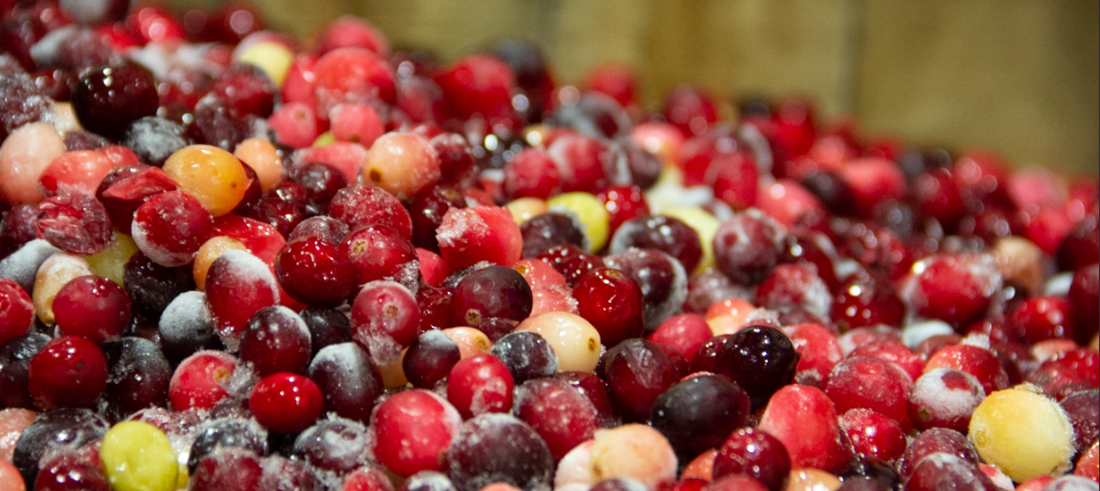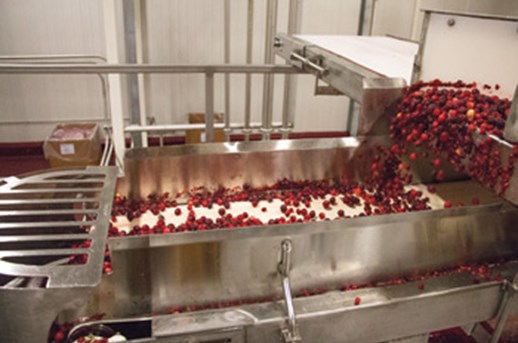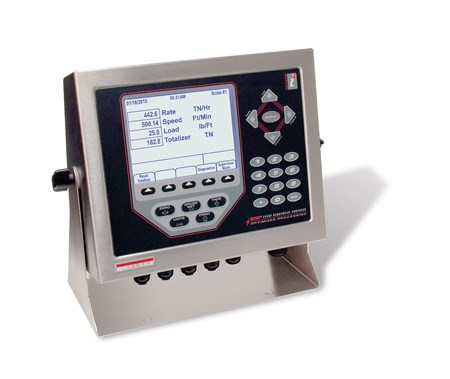Is the website displaying in the correct language? Please confirm or select a different language.
Your region has been set automatically. Please confirm or select a different region.

Rolling with the Cranberry Punches
A 421 Master™ belt scale and 920i® weight indicator weigh cranberries in motion to keep operations running like clockwork.
There is nothing like the early morning air on a Wisconsin fall day. The air is crisp and cool—perfect for the cranberry harvest. As the United States’ leading producer of cranberries, Wisconsin harvests more than 60 percent of the country’s crop with Massachusetts, New Jersey, Washington and Oregon producing the remaining 40 percent. Pittsville, Wisconsin may look like your typical rural town, but it’s home to Badger State Fruit Processing where cranberries are plentiful and Rice Lake’s Master 421 belt scale with 920i indicator keep operations running like clockwork.
Don’t let the tranquil outdoor setting fool you; there isn’t much peace and quiet inside Badger State Fruit Processing during the pandemonium of harvest. Dryer fans are blowing and the belt scale is humming seemingly nonstop. The facility has been working with cranberries for more than 30 years, and they have the operation down to a fine science, utilizing Rice Lake’s equipment to weigh berries in motion at a speed of over 200 pounds per minute.
Processing over 50 million pounds of cranberries into concentrate, as well as sweet and dried cranberries on a yearly basis, Badger State Fruit Processing is the largest independent supplier of cranberry products in the United States. Their position in the center of Wisconsin’s cranberry country makes for an ideal location.

The 421 Master belt scale is specifically designed for high-volume, low-density applications like fruit processing.
Contrary to popular belief, cranberries do not grow in water. A perennial plant, cranberries grow on low-running vines in sandy bogs and marshes. Cranberry marshes are flooded with water to aid in harvesting each fall. When the marsh is filled with water, berries float to the surface on a small pocket of air. They can then be harvested off the top of the water by specialized equipment.
Cranberries are harvested each year from late September through October, then trucked to the Badger State Fruit Processing facility, where they are frozen and stored for up to a year before process-ing. During harvest season, approximately 200 trucks per week come in and out of the facility delivering cranberries. Processing this large amount of product makes reliable, streamlined systems essential.
When Ken Carlson of Valley Scale installed Rice Lake’s Master 421 belt scale with 920i indicator, Badger State Fruit Processing knew they had made the right decision for the business. The 421 is specifically designed for high-volume, low-density applications, making it an ideal fit for fruit processing. Its open design facilitates easy cleaning, especially useful for food processing applications. The 920i provides real-time measurements for rate (pounds per minute), speed (feet per minute), load (foot-pounds) and accumulated weight (totalizer).
The juicing room is where the process begins. Eight bins of frozen cranberries are brought in per batch. Then, they are dumped in the hopper which breaks up the fruit. Cranberries then travel over an earth magnet, up through a metal detector and onto a sizing shaker table which removes small berries that will be used for juicing. A leaf blower is used for any remaining leaves and vines, and an optic sorter takes out all foreign matter and bruised berries. The good product is taken up through an auger, onto a shaker and then onto the Rice Lake weigh belt, diverted into two lanes and sliced.
“In the three years we have been utilizing Rice Lake’s Master belt scale and 920i indicator, we have not had any complaints or problems with them,” says Mark Konrardy, director of operations. “It keeps
our processes running and I am very happy with the quality.”
Once the cranberries are sorted and sliced, they are put into leeching tanks where they are soaked and infused for about three hours. Afterward, the cranberries are sent through the nine-and-a-half-foot wide dryer which takes about two hours. Following the dryer, the cranberries are packaged in large boxes or small individual packages to be sent out all over the world.
From the outside, Badger State Fruit Processing may look like your average small-town warehouse facility, but don’t let that fool you into thinking big things aren’t happening with these tiny red berries!

Subscribe to Rice Lake Magazine
Sign in or create a Rice Lake website account to request a Rice Lake Magazine filled with application stories like this one be sent to you.
Account Sign In Create an Account


 My Account
My Account
